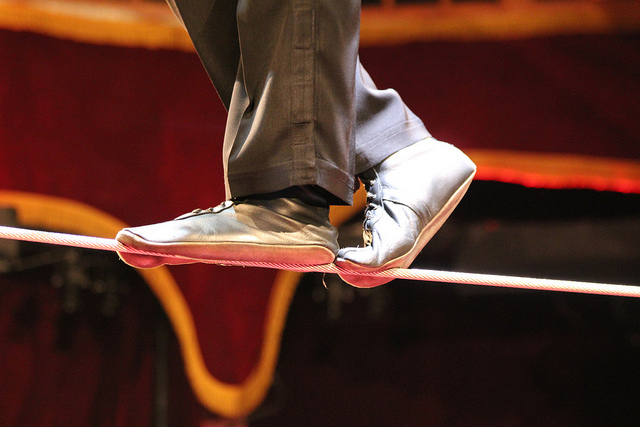“The life which is not examined is not worth living.”
~ Plato.
Do you want to grow without changing?
Growing as a person is important to most people I speak to. And yet, change is scary and uncomfortable. If only we could grow without changing.
Change seems hard.
We will probably have to say lots of affirmations, start going to yoga, and the gym, and only drink alcohol on the weekends. And we might actually be able to keep that up for a month or so, but will it really lead to becoming better people?
We can try to grow by changing our behaviour—indeed many types of therapy do focus entirely on treating behaviour—but if we want long-lasting, meaningful growth that bleeds into all areas of our lives, then we really need to look at what is causing our behaviour.
Increasing awareness.
We start this process of inquiry by increasing our awareness. Becoming aware may sound simplistic and easy, but it’s less obvious and more impactful that we might imagine. Increasing our awareness is the process of fully comprehending how we have come to be as we are.
Developing awareness of our needs, our yearnings, how we relate and make meaning of experiences, enables us to make sense of our world and how we are in it.
Why isn’t it easy to get our needs met?
When our emotional needs are met as children, we grow up believing we are worthy of love; we can express our feelings, have healthy relationships, take responsibility for our actions, and have resilience.
If our family of origin was unable to take care of our needs as children, most likely due to their own past experiences of abuse, or of not being received, we develop ways to take care of them ourselves.
But how we learn to get our needs met may not work for us as adults.
We might notice a dissatisfying pattern in our relationships, or career choices; or maybe we can’t identify a pattern at all, but things just don’t seem to be working out and we are not sure why.
Shame.
Have you ever ended up in a fight with your partner, when all you really wanted was to feel loved? I have. Many times. Did you even know that’s what you needed at the time?
If a yearning to be loved was not supported in our family, then any time we experience a yearning to be loved, we will feel some shame. Over time, with enough instances of our yearning not being received in our environment, and deemed ‘unacceptable’ or ‘too much,’ or ‘too little,’ we will start to lose awareness of the yearning itself and when we feel a need to be loved, instead we only experience the shame.
To make things even more confusing—it’s tricky but stay with me—the way we have learnt to manage our shame, to make it more bearable, might be to run away, start crying, or get angry. ‘Styles’ of managing shame manifest differently in every person, but every strategy will disguise the shame (and the yearning) and make it easier to cope with. However you have learnt to hide a need, yearning or way of being, which was not ‘okay’ by those closest to you, has helped you disown that part of yourself. Don’t you want to get it back?
Removing the obstacles to growth.
Many of our natural yearnings are blocked out of our awareness and replaced by more ‘acceptable’ ways of being, feeling, and acting, which become our automated way of operating in the world. These are our obstacles to growth.
Developing awareness of your true needs will lead to growth. But it will require you to be curious and brave, meeting aspects of yourself that have long been denied.
When we start to integrate how and why we function as we do, we may feel exposed, ashamed or self-conscious. It’s part of the process. My experience is that it is also extremely liberating and joyful. I have managed to forgive myself for some of the terrible ways I have behaved in my life by discovering the seeds from which the behaviour was grown.
Through this process, my behaviour has changed organically, rather than by setting myself some strict rules about how to become a better person and trying to make them stick. Affirmations, yoga and drinking less wine do help, but they come naturally through the process of becoming aware.
Ignorance is not bliss.
At this point are you thinking, “ignorance is bliss”?
Let me posit something different to the old ‘ignorance is bliss’ statement: ‘a lack of true knowledge is our greatest source of pain.’
In yoga philosophy, avidya, a lack of true knowledge, is believed to be our biggest obstacle and the source of most of our pain. It prevents us from seeing things as they really are. In yoga, the goal is to reduce avidya so that we can make sound judgements, better decisions and act correctly.
We are trying to do the same in therapy: we attempt to increase true awareness, to make sense of ourselves, to integrate the truth, to heal, to change; to grow.
Sources
Jennifer Mackewn, Developing Gestalt Counselling (Sage Publications, London, UK, 1997), 113-115.
Robert Lee, The Secret Language of Intimacy: Releasing the Hidden Power in Couple Relationships (GestaltPress, Santa Cruz, California, USA, 2008), 25-27.
T.K.V. Desikachar, The Heart of Yoga (Inner Traditions International, Rochester, Vermont, 1995), 9-11.
Love elephant and want to go steady?
Sign up for our (curated) daily and weekly newsletters!
Editorial Apprentice: Sue Adair/Editor: Catherine Monkman
Photo: Quinn Dombrowski/Flickr











Read 0 comments and reply